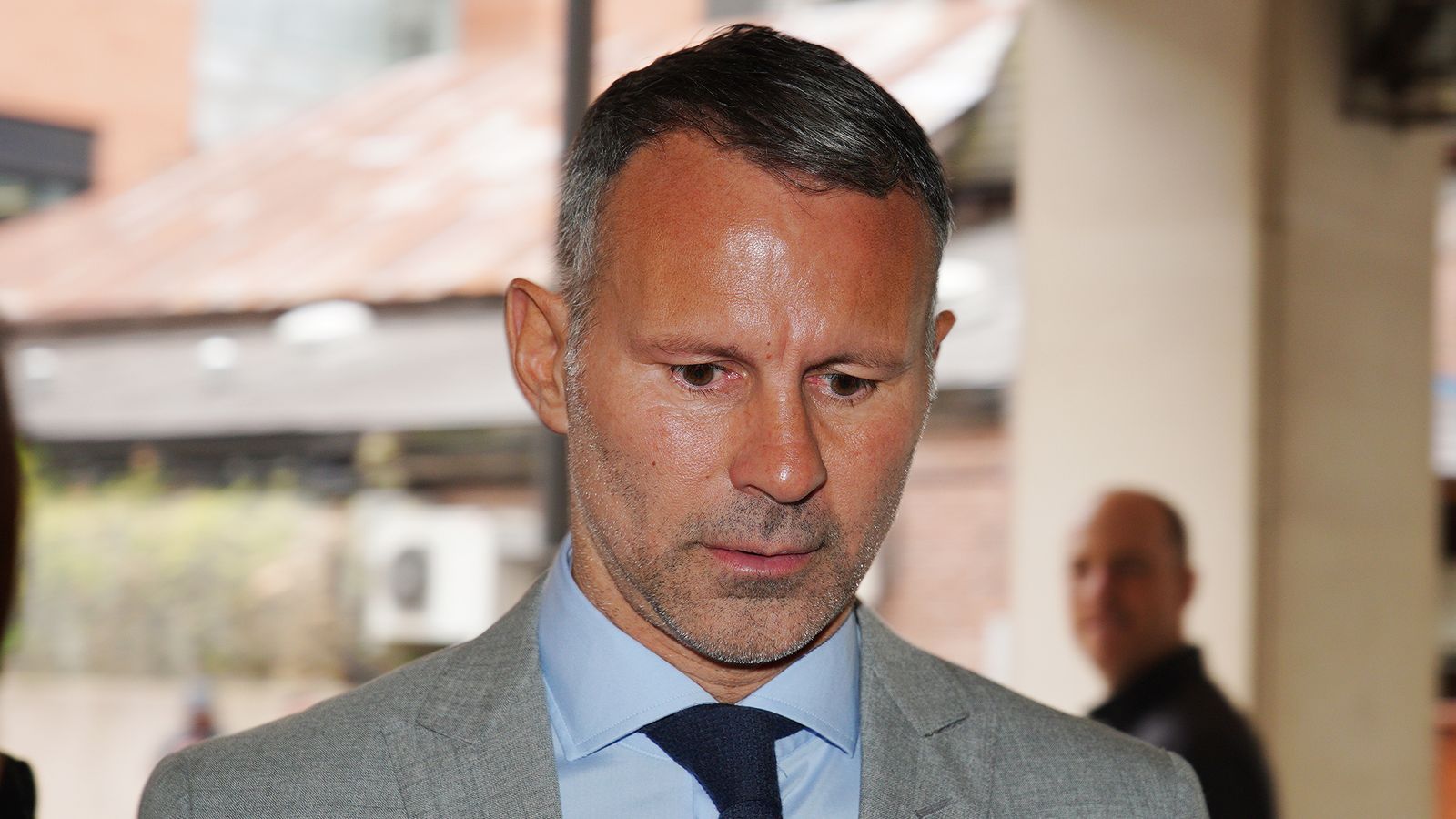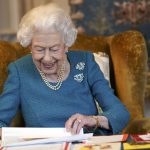Ryan Giggs broke down in tears in court as he described his night in a police cell over an alleged assault on his ex-girlfriend as “the worst experience” of his life.
The former Manchester United footballer said he was “scared” when he spoke to police officers at his home on the evening of 1 November 2020, and he had “never been in that position before”.
Giggs is standing trial, accused of using controlling and coercive behaviour against his former partner Kate Greville, as well as assaulting her and her sister Emma.
He denies the charges against him.
Read live updates from the trial as they happened
Giving evidence for a second day, Giggs began sobbing in the witness box as he told how he was taken to a police station after being arrested.
“Worst experience of my life,” he said of his night in a cell.
The 48-year-old said he got “hardly any” sleep and spoke to a solicitor for the first time the next day.
Ms Greville alleges that Giggs put his hands on her shoulders, looked her in the eyes, and deliberately headbutted her in the face during the alleged assault.
But the former Wales manager told the jury on Wednesday that he and Ms Greville “clashed heads” in a “sort of tug-of-war” after attempting to grab her phone during an argument.
‘Six, seven kicks to the head’
Chris Daw QC, representing Giggs, asked: “Did you at any stage put your hands on Kate’s shoulders and forcibly and deliberately headbutt her in the face?”
“No, I didn’t,” Giggs replied.
He told the court he and Ms Greville had earlier “totally lost balance” and “slipped” on bags, which had resulted in him landing on top of her.
He said he was subjected to “six, seven kicks to the head” and suffered “several cuts” around his mouth.
Asked if he deliberately elbowed Ms Greville’s sister Emma during the incident, Giggs replied: “No.”
Giggs said he felt “confused” and “scared” after being accused of assaulting Ms Greville and her sister.
Answering questions from Mr Daw, Giggs accepted he was a “man with many faults and flaws” but denied this included a “propensity to commit violence against women” or to control and coerce women.
‘Hot-headed’ and ‘jealous-type’
Under cross-examination by prosecutor Peter Wright QC, Giggs said he could be “hot-headed” and a “jealous-type” on occasions.
Answering Mr Wright’s questions, the ex-winger accepted he had sent “constant unwanted messages” and made “constant unwanted calls” to Ms Greville and her friends when she tried to break off the relationship.
He also acknowledged he had turned up “unannounced at her home, workplace, and gym”.
Asked about an email he sent to Ms Greville which had the title “C***!!!”, Giggs said: “I was emotional and there was no excuse for my language.”
Mr Wright asked the former sportsman if he is a “liar”, “cheat”, “narcissist”, “manipulator”, “controlling”, “aggressive”, and “violent”.
“No,” Giggs said to each one.
The prosecutor said: “I’m going to suggest you are each of those things, Mr Giggs, aren’t you?
“No,” Giggs responded.
Giggs was asked about a message in which he said he was “waiting for the bars to open” so he could “get some cl**ge”
He told the court he was referring to women, but denied that he “treats women as commodities”.
Giggs called ‘team meeting’ over dishwasher loading
Earlier, Giggs was questioned about his life with Ms Greville after she moved into his home at the time of the first COVID lockdown.
Ms Greville previously told the court it was “utter hell”, but Giggs insisted it was “a really happy time”, with his daughter and her boyfriend also living with them, along with his son at times.
Asked whether he was “particularly keen on dishwasher loading techniques”, Giggs told the court: “I would be opening the dishwasher and the tablespoons would be the wrong way round.
“It would wind me up because I would have to do it again, so I called a team meeting and just said, ‘Everyone, can you please put the tablespoons the right way round’.
“It wasn’t a big argument, it was just how I explained it.”
The trial at Manchester Crown Court was adjourned until Thursday, when Giggs is expected to continue giving evidence.






















